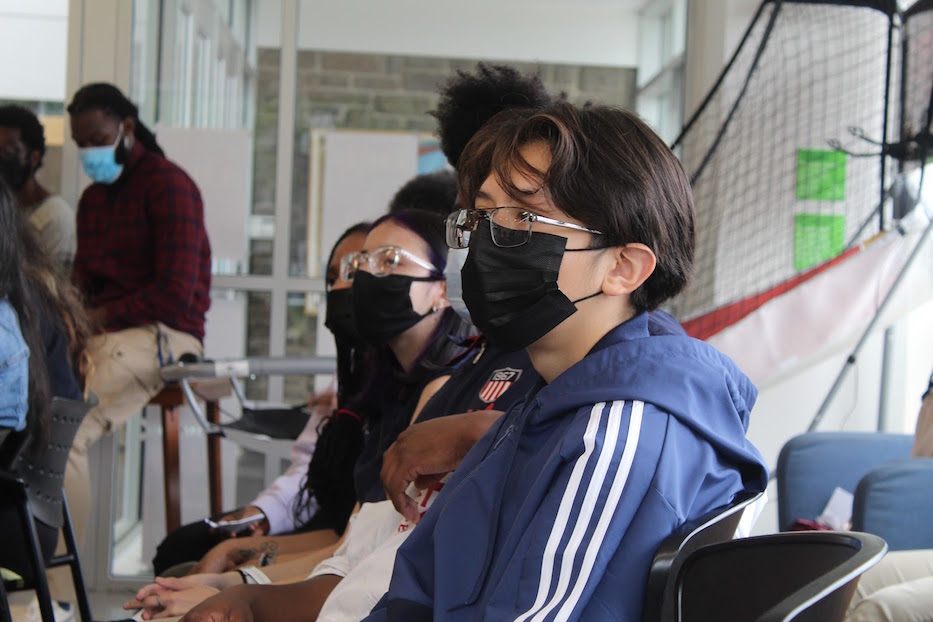
Education & Youth | Youth Arts Journalism Initiative | Achievement First Amistad High School
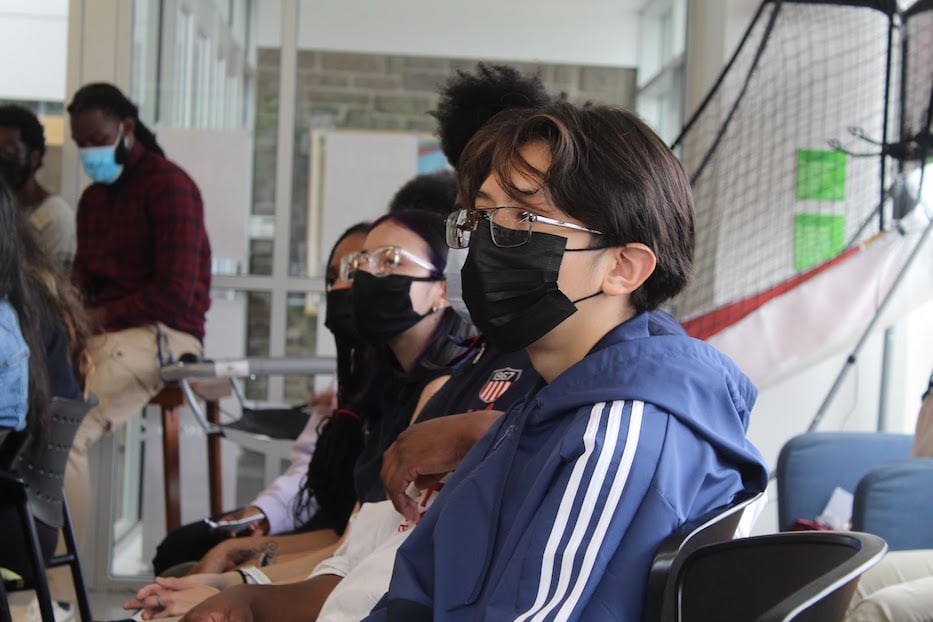 Achievement First Amistad High School students listening to Professor Centeno’s lecture. Abiba Biao Photos.
Achievement First Amistad High School students listening to Professor Centeno’s lecture. Abiba Biao Photos.
Professor Miguel Centeno arrived at Achievement First Amistad High School to lecture students about the impacts of war. What students didn’t expect was for him to open up about his own upbringing—and give them a chance to see themselves reflected in his story.
Students gathered to hear Centeno speak in late May, during a recent visit to the school to give a lecture. This year, 11 Amistad juniors and seniors have been studying his course "Western Ways Of War," hosted by the National Education Equity Lab. The lab is an educational nonprofit that partners with universities such as Princeton, Wesleyan, and Georgetown to bring online educational opportunities to schools as a way to earn college credit.
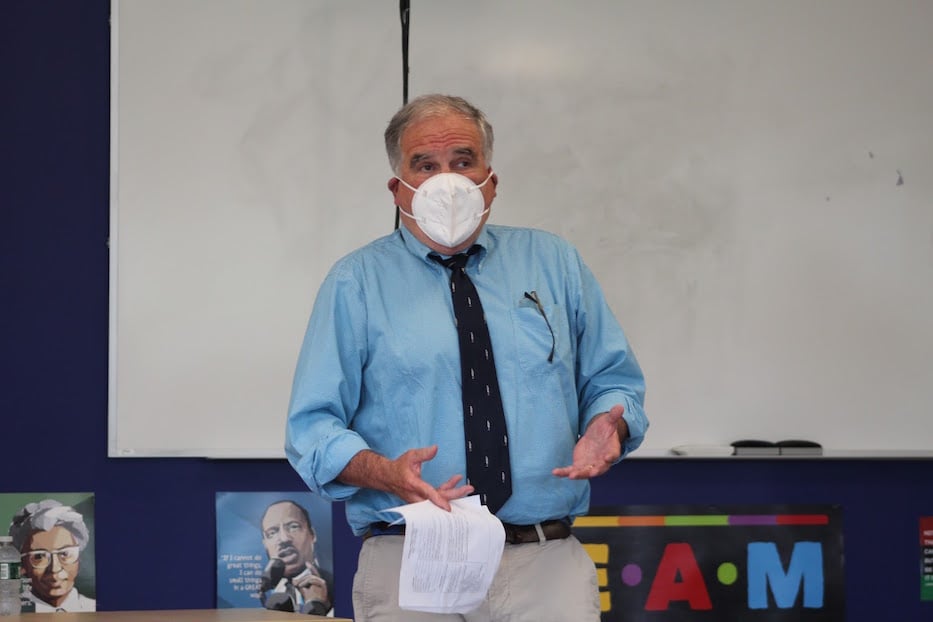
Professor Miguel Centeno.
When he arrived to speak at the school, Centeno invited in fellow history students to listen in on the course—and stay for his tips for succeeding in high school and in life.
His experience isn't so different from students', he said. Centeno has been working at Princeton for 32 years, but grew up poor and Latino—a background that still drives him to teach, nurture and prioritize kids from historically marginalized communities. At the university, he spearheads efforts to promote diversity and inclusion within the student body.
Centeno is also no stranger to New Haven. As a young adult, he earned his undergraduate, graduate, and doctoral degrees all from Yale University. While he was doing his dissertation research in Mexico, a near-death experience led him to return to the U.S. and apply to an open position at Princeton.
“Because I applied to work one year early, there was an opportunity at Princeton that wouldn’t have been there one year later," he said.
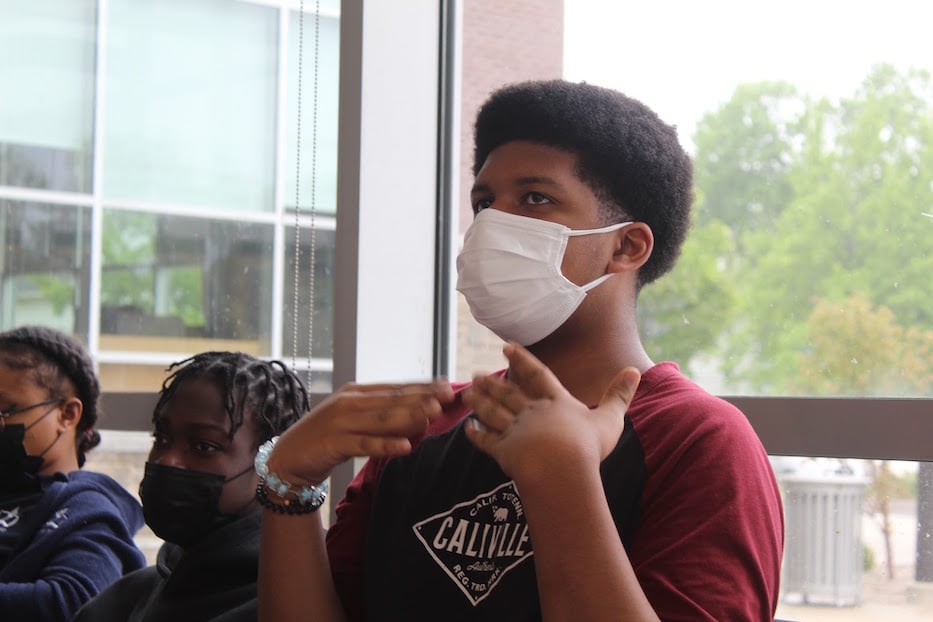
Amistad High School freshman TJ asking a question.
Theron Samuel, who goes by the nickname TJ, is a freshman taking AP U.S. History and a member of Amistad’s Black Student Union. He attended the lecture to “ask questions about the unordinary” and wanted to get a glimpse of the workload for an advanced college course.
Samuel said he was moved by Centeno’s upbringing from poverty and growth into a more affluent position. “I wouldn’t really have expected him as white, middle upper class man to experience what I have experienced, so it really shows that a lot of people can make it,” he said. (Centeno may be white passing, but he is Latino).
When he had the chance to ask a question, TJ interrogated society's perception of truth.
“People discover facts and my question to that was ‘How was this real?’” he said. “Because they discovered it, they could’ve made it biased by their perspective.”
Centeno’s response—that personal beliefs can indeed influence facts—helped Samuel clarify his thoughts. He said that he now realizes that there is a thin line between fact and personal opinions.
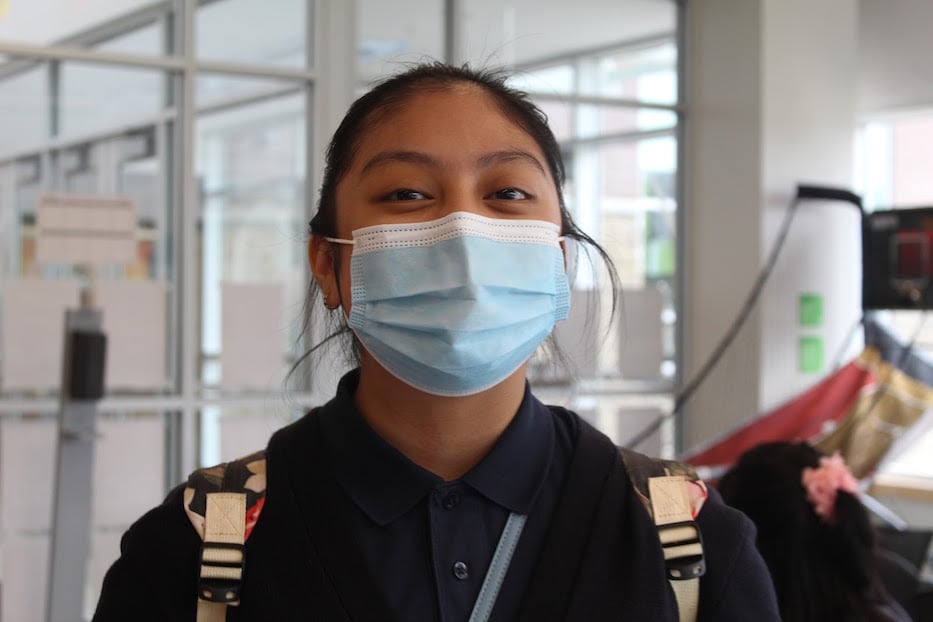
"It all came to make perfect sense once he summarized it in his lecture," said Jacquelin Onofre.
Jacquelin Onofre was one of the 11 juniors and seniors that took the Western Ways of War course. She attended the lecture because she was interested in meeting Centeno after watching his pre-recorded lessons and assignments for months. Onofre said that listening to Centeno elaborate on his course in-person allowed her to understand more of the content.
“It was interesting because as we wrapped up the modules, all that we learned about the individual warrior, the industrialization of warfare, and the globalization of war, it all came to make perfect sense once he summarized it in his lecture,” she said.
Onofre cited her engagement with Centeno's speech with his strong rhetoric, noting his compelling delivery and use of emotion for high audience engagement and interest.
She also described the lecture as “eye opening,” saying that Centeno was teaching her life lessons she never thought “connected to this course.” To Onofre, the most notable lesson was combating discouragement and challenges in academic environments.
“There needs to be more people like us in top colleges, that they’re telling us that we’re not going to be able to get to,” Onofre said.
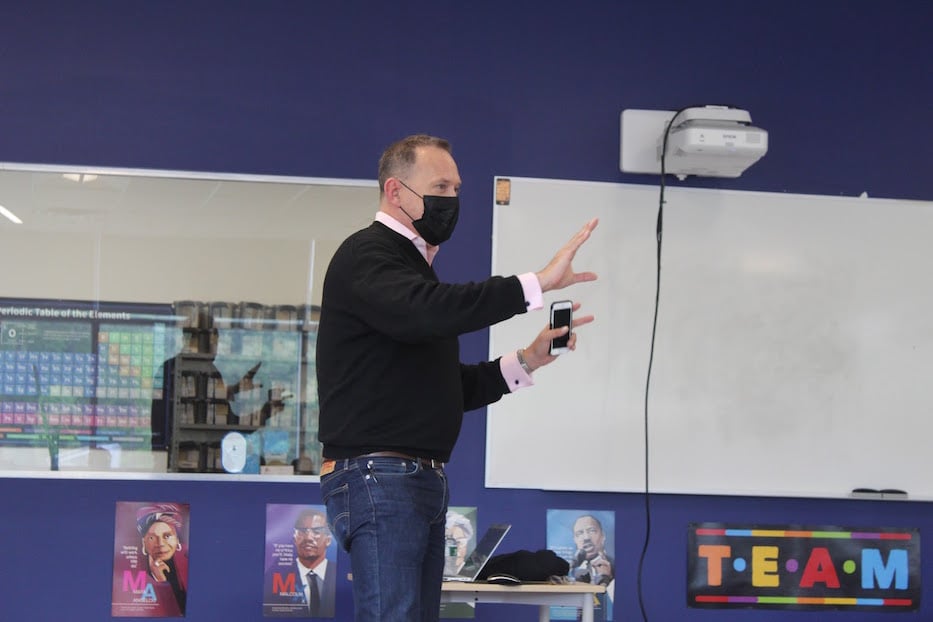
Christopher Beauchamp: A sociological view.
AP World History teacher and "Western Ways of War" co-teacher Christopher Beauchamp traced his involvement in bringing Centeno to Amistad for his passion of learning. The course exposed him to kids outside he normally teaches “work with an entirely different group of students with entirely different skill sets, different ages.”
Teaching the course was a “natural fit from a content standpoint” to him with his background in political science and experience as an AP World History teacher. Although Beauchamp himself is a teacher, he also took on the role of a student, sat at a desk and learned something from Centeno during his visit.
“I like the fact this was not a history of war class,” he said. “It was a sociological view of war which I think is more holistic and organic and I find that much more relevant and compelling.”
Beauchamp added on how things learned in this course are versatile, can be applied to current events and are extremely relevant to modern day society.
Beauchamp took off his teaching hat to become a student and listen to Professor Centeno’s words of wisdom and wacky anecdotes. “The fact that he was talking about AP Calc when he’s a sociologist. I was like ‘how did you get from that pain course to history and sociology?’” he asked with a look of bewilderment. “There's a lot of ways to get to where you want to be even if you don’t know them at the moment.”
Beauchamp is currently working to get another National Education Equity Lab course at Amistad next year, called “Psychology, Grit, Passion and Perseverance” held by Professor Angela Duckworth of the University of Pennsylvania.

